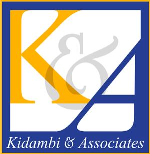In a decision issued March 4th, the Ninth Circuit Court of Appeals adopted the arguments of the Legal Action Center (LAC), of the American Immigration Council, that the United States Citizenship and Immigration Services (USCIS) unlawfully imposed extra-regulatory requirements on a petition for a worker of “extraordinary ability” (EB-1).
The case in question, Kazarian v. USCIS, involves a theoretical physicist whose employment-based visa was denied because he did not demonstrate “the research community’s reactions to his [scholarly] publications” – an arbitrary requirement with no justification in the law. In today’s decision, the Ninth Circuit amended its previous ruling and reversed the agency’s interpretation. The court held that “neither USCIS nor an [Administrative Appeals Office] may unilaterally impose novel substantive or evidentiary requirements beyond those set forth [in the regulations].” The Ninth Circuit also found that the agency impermissibly added another unlawful criteria as well.
This is a good decision and we applaud the verdict. Our Office regularly files EB-1, Extraordinary Ability and Outstanding Researcher/Professor applications and of late, we have found that the standards of adjudication have varied dramatically between the two Service Centers (Nebraska and Texas). Seeking more than what is required by the regulations is a common problem as the Service Centers seek to distinguish and isolate truly extraordinary cases. One reason for this trend is the sudden spike in such applications due to EB2/EB3 backlogs for India/China. We routinely review and provide clients with the best available option in such cases. We encourage you to contact us for an appointment if you believe you qualify for any EB-1 category.
